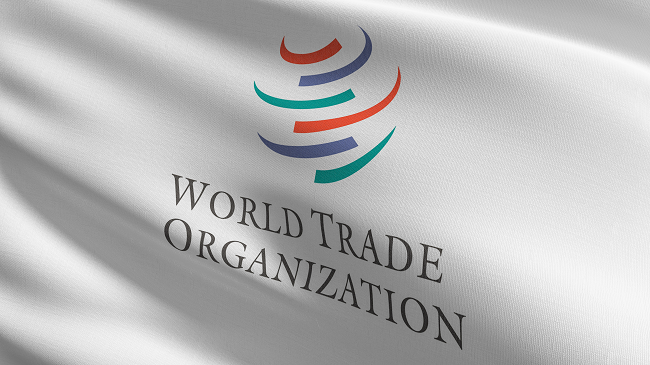
Former UK prime minister, Gordon Brown, spoke at the 2023 WTO Public Forum in Geneva yesterday (12 September), making the case for a reformed set of global institutions capable of addressing modern challenges.
In a speech that name-checked everyone from Thomas Edison to Amy Winehouse, Brown identified three trends making global challenges increasingly difficult to address.
Multipolarity
Brown began by discussing the shift from a unipolar world, dominated by the US, to one where other centres of power, particularly China, are playing an increasingly crucial role in world affairs. He said:
“Multiple and competing centres of power have huge implications for Chinese, American and other relationships across the globe."
He added that this phenomenon has taken “dramatic form” through much of the world’s reluctance to support Ukraine in the war against Russia.
‘Trade iron curtains’
The second trend Brown identified was a move away from neoliberalism, in which economics informs politics, towards what he called 'neomercantilism': an economic programme driven by politics.
Brown added that the politics driving economic policy today is often protectionist.
“Iron curtains” in trade, technology and data are descending between nations, he suggested.
Deglobalisation
Finally, he said the level of globalisation seen in recent decades is subsiding, with even the process’s most vigorous sponsor, the United States, “no longer globalisation’s motivating force.” He added:
“The change is the clear rejection of hyper-globalisation which, instead of just removing cross-border restrictions on trade and investment, assumed the only way forward was to liberalise, privatise and deregulate.”
He argued the Washington consensus of the past “no longer has any support, even in Washington.”
Rising nationalism and closing borders
“The common thread underpinning all three of these shifts,” he said, “is a resurgent nationalism.”
Movements of ‘economic nationalism’ across the world, in America, China and elsewhere, have resulted in more customs duties, border controls and immigration restrictions, he contended.
On the consequences of nationalism, he highlighted growing numbers of civil wars and secessionist movements, around 60 and 50 respectively worldwide. Broadly, he said:
“More and more governments and peoples are thinking of our world as an adversarial struggle between ‘us’ and ‘them.’”
Is reform the solution?
Despite this, Brown said, we live at the point in history when international cooperation is most needed, what Jake Sullivan, adviser to US President Joe Biden, called a “decisive inflection point.”
Among the issues he emphasised was the persistence of global poverty, which he noted was once projected to be eradicated by 2030.
Brown's solution was to reform global institutions, such as the International Monetary Fund (IMF), the World Bank and the WTO to move past the mentality of “passing the begging bowl around” poorer nations.
Brown vaunted a “new multilateralism” that could better incorporate African perspectives, which he argued would also help Africa receive the financing it will need to adapt to climate change.
“The future for Africa is not to feel satisfied with scraps from the table; it is to be at the top table of a reformed multilateral system.”
The director general’s view
Director general of the WTO, Ngozi Okonjo-Iweala, spoke with Brown in a panel discussion following his presentation, agreeing on the dangers of growing nationalism and “fear”.
On poverty and world hunger, she said it was possible to make a “material difference” on food availability by forging more durable supply chains on fertiliser, for which she said the world has been “inordinately” reliant on regions affected by the invasion of Ukraine. She said:
“We’ve got to diversify supply chains for fertiliser so we don’t find ourselves in this position again.”
“Trade-distorting subsidies” also attracted criticism from the director general, which she said needed to change if nations were able to compete and produce in a variety of industries, particularly in poorer countries.



